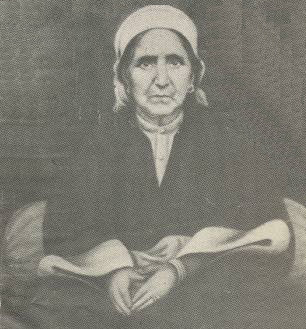Riche Ded
by T. N. Kaul
 Riche Ded
Riche Ded
Source: Koshur Samachar1. Kala chhay lalit, kala chhe shilp, Kala chha sangeet - sur, taal, raag, Kala chha vastun, Kala chhe vanavun, Kala chha kavita - pad, chhand, suha, Kala chhe harsh, kala chhe anand, Kala chhe mohini, yatch, lol, anuraag.Art is beauty personified, beauty carved in stone, Art betokens music - sur taal and raga, Art is like a pithy ditty sung in chorus, Art is poetry - a couplet, a stanza, a melody, Art is a state of ecstasy and eternal peace, Art is charm, allurement, love and longing. 2. Vaanss chhe ne manushas chhoniravaan, sobaav chhu ne manushas handeravaan, Marg chhu amaa yi varga valaan, Roog chhu andri-andri sanderavaan. Agree does not detract from a man's life-span, Nor does temperament make him stale, Only the death of near ones dashes him down, The hidden malady hollowing his interior. 3. Veshwas chhu nishchay, veshwass chha shraddha, Veshwas chhu saahas, partet te aashaa, Veshwas chhu saadhan, anaan sedhi, saphalta, Veshwas chhu swyambhu, aatme gyaanich pratim. Confidence is firm resolve, trust and faith, Confidence is courage, belief and hope, Confidence is a vehicle for achieving success, Confidence is self-existence, an ideal for realization. 4. Kamcha prath chhu maazas laha kharaan, Mokha prath chhu karaan adijen soor, Kudur vanun chhu be-sur, grinah gaaraan, Shani-shani gaalaan ye pholevun noor. The stroke of the whip raises wales on the flesh, But the blow of the tongue pounds the very bones, Harsh words are discordant and breed hatred, Slowly eclipsing the brilliant light of love. 5. Yus diyi pazich hakh, suy chhu mujaahid, Poz chhu khodaaai, kyazi khodaai chhu waahid. Neke chhene raavan, neki chha poz imaan, Yohoy myon deen mazhab, ath chhum khoda shaahid. He who raises the voice of truth is a crusader, Truth is God because God is one. A kind deed never goes waste, kindness is true faith, It is my religion and God bears testimony to this. 6. Dayaloo man chhu akh sundar baagh, Barus sag gandus tse pai, Rut vetsaar chhu akh sundar byol, Chhakh ye butaraech to karus lai: Modhur shabd chhu akh sundar posh, Karaan paraazyat shathras, anaan kathi vizai: Wopkaar-krti chhe akh sundar phal, Sethaa myuth, sethaa pooth, bina samshai. Kind heart is like a delightful garden, Water it fully and keep it duly fenced: Good thought is like a beautiful seed, Sow it and, surely, raise a bumper crop. Sweet word is like a charming flower, It disarms enemies and ensures success: Benevolence is like a delectable fruit, Large-sized and very delicious, indeed. 7. Zindagi chha akh samai, akh avsar te akh kaal, Zindagi chhu heachun te heachit vartaavun, ama kathin sawaal, Zindagi chhe tsu-vot, du-tsyot te suma-soth, Yohuy parzanaavun, parkhaavun, ratun, traavun mahaal. Life is time - anage full of opportunities, To imbibe good and to do good is difficult task, Life is a crossroads, a deceptive path, an embankment, To identify, test, accept or reject these is hard. 8. Aatmaa anubhav chhu divaan diva gyaan, Avay aatma gyaanik chhi saari anugraagi: Aatma gyaan chhu mukhti hund nishaan, Su aastan yogi, bhogi, raagi yaa tyaagi. Self-realization results in recognition of God, That is why the wise strive to know themselves: Self-knowledge is the symbol of salvation for all, Be it a Yogi, sensualist, lover or anchorite. 9. Gaatlev chhu vonamut har kanh chhu anzaan, Saari na nipun, saariney na pahchaan, Itihaas chhu zyooth, prasang chhi anek, Prath kaansi sankooch, be-had chhu kreshaan. The wise have said that everybody is ignorant, All are not experts, all are not seers, The agenda is quite long, topics are numerous, All suffer from constraints but they long to learn. 10. Dayi naav swarun, su manas darun, Suy zevi parun, gayi saez sumran, Gwar dhaarun, tas nishi anubhav yaarun, Suy Ishwar mangal - amar, ajar, sanatan. Remembering God, enshrining Him in the heart, And reciting His name is the unaffected rosary: A guru is necessary for gaining spiritual bliss, Which is immortal, imperishable and timeless. 11. Gaash aasi te asi prakash meli Dimou tsyat asi te vopdi yehsaas, Qasma-qasam kath chham hanga te manga, Karau pachh kaensi diya su veshwas. Only if we are lettered can we attain knowledge, Only by delving deep can we realise our duty: Why should we take recourse to oaths for nothing? If we put faith in someone, he will not fail us. 12. Mewa chhu aasan setha chok papna bronth, Mantar chhu baasaan neshphal zapna bronth; Shur chhu karaan gaangal kehn dapna bronth, Bekal chhu rozaan nam-tal gaatul sapna bronth Fruit is quite bitter before it ripens, Mantra seems ineffective before it is recited; A child poses problems before it learns to speak, A fool remains subjugated until he grows wise.



